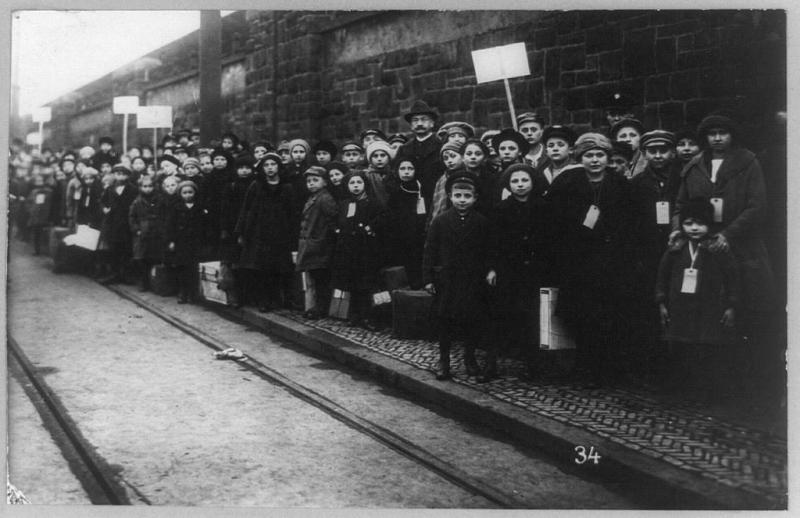Strike in Lawrence, Massachusetts, with children posed on sidewalk
A photograph taken during the 1912 Textile Workers' Strike in Lawrence, Massachusetts. This strike, known as the "Bread and Roses" strike, lasted more than two months and resulted from decreased wages for factory workers following the passing of a law that shortened the work week for women and children from 56 to 54 hours.
This strike was organized by the Industrial Workers of the World (IWW) and consisted primarily of women, most of whom were immigrants. At the time, half of the 32,000 workers in Lawrence's textile mills were women aged 14 to 18. Many children under the age of 14 worked in the textile mills, as well.

Strike in lawrence, Massachuesetts, with many children posed on sidewalk. 1912. Photograph. George Grantham Bain Collection, Library of Congress, Washington, D.C. https://www.loc.gov/pictures/item/89714967/
Public Domain
Public Domain is a copyright term that is often used when talking about copyright for creative works. Under U.S. copyright law, individual items that are in the public domain are items that are no longer protected by copyright law. This means that you do not need to request permission to re-use, re-publish or even change a copy of the item. Items enter the public domain under U.S. copyright law for a number of reasons: the original copyright may have expired; the item was created by the U.S. Federal Government or other governmental entity that views the things it creates as in the public domain; the work was never protected by copyright for some other reason related to how it was produced (for example, it was a speech that wasn't written down or recorded); or the work doesn't have enough originality to make it eligible for copyright protection.